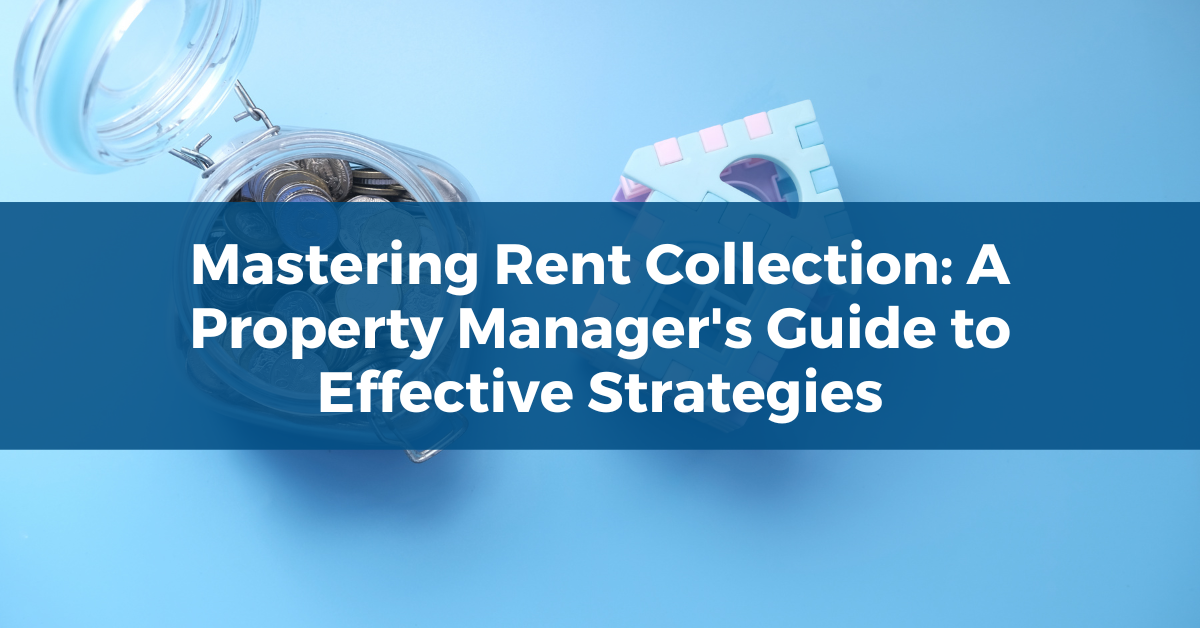Rent collection is a fundamental aspect of property management that requires finesse and understanding. As a property manager, ensuring a smooth and efficient rent collection process is not only essential for your financial stability but also contributes to positive tenant relationships. In this article, we'll delve into the best practices for rent collection, guiding you through strategies that not only streamline the process but also foster a positive living experience for your tenants.
- Understanding the Tenant's Perspective: Commencing with a deep understanding of your tenants' financial situations is paramount. Recognize the challenges they may face and tailor your rent collection approach accordingly. By empathizing with their circumstances, you build trust and cooperation, laying the foundation for a successful rent collection process.
- Digital Payment Solutions: In an era dominated by technology, implementing digital payment solutions can significantly enhance the rent collection experience. Opting for secure and convenient online payment systems not only expedites the process but also aligns with the modern lifestyle, making it easier for tenants to fulfill their financial obligations.
- Setting Clear Rent Policies: Transparency is key in fostering a harmonious relationship with tenants. Clearly communicate rent policies, terms, and conditions to avoid confusion and disputes. Establishing a straightforward framework ensures that both parties are on the same page, promoting a smooth rent collection process.
- Automated Reminders: Leverage technology to send automated rent reminders to tenants. Proactive communication plays a pivotal role in ensuring timely payments, reducing the likelihood of oversights, and fostering a sense of responsibility among tenants.
- Flexible Payment Plans: Recognizing the temporary financial challenges tenants may encounter, offering flexible payment plans can be a game-changer. This approach not only demonstrates your understanding but also strengthens the landlord-tenant relationship by working collaboratively to find viable solutions.
- Late Fee Policies: Crafting fair and effective late fee policies strikes a balance between incentivizing on-time payments and avoiding unnecessary punitive measures. A well-thought-out late fee policy encourages timely payments while ensuring fairness in your approach.
- Personalized Communication: Building positive relationships with tenants involves personalized communication. Addressing their concerns, inquiries, and feedback promptly creates a sense of trust and reliability. Open lines of communication contribute to a positive rent collection experience for both parties.
- Record-Keeping Best Practices: Maintaining accurate and organized rent records is crucial for effective property management. Implementing streamlined administrative processes for record-keeping not only ensures compliance but also facilitates efficient financial management.
- Legal Considerations: Understanding the legal aspects of rent collection is imperative. Familiarize yourself with local laws and regulations to ensure compliance. Adhering to legal guidelines safeguards both parties and establishes a framework for a fair and lawful rent collection process.
- Handling Delinquent Payments: When tenants consistently fail to pay rent, it's essential to take decisive steps. Understand the legal procedures and eviction considerations, but also explore alternative solutions that may salvage the landlord-tenant relationship while protecting your financial interests.
- Continuous Improvement: Encourage feedback from tenants and use it to iteratively improve your rent collection processes. A commitment to continuous improvement ensures that your strategies remain effective and aligned with the evolving needs of both property managers and tenants.
- Community Resources: Explore community resources that offer financial support to tenants in need. Collaborating with local organizations can create a supportive environment, emphasizing a community-centric approach to property management.
- Educational Initiatives for Tenants: Empower your tenants by providing educational materials on budgeting and financial responsibility. Equipping them with the tools to manage their finances effectively not only benefits them but also contributes to a more stable rent collection process.
In conclusion, effective rent collection goes beyond the mere transactional aspect; it's about fostering positive relationships and creating a conducive living environment for tenants. By implementing the best practices outlined in this article, property managers can streamline the rent collection process, mitigate challenges, and build lasting relationships with their tenants.


.jpg)